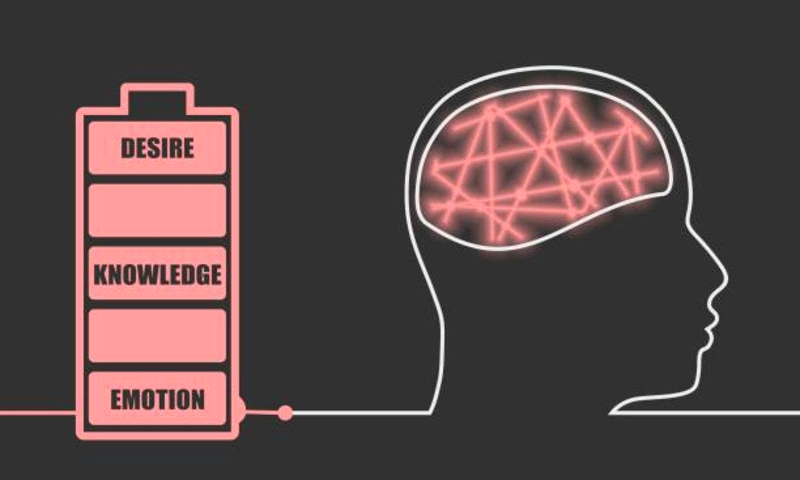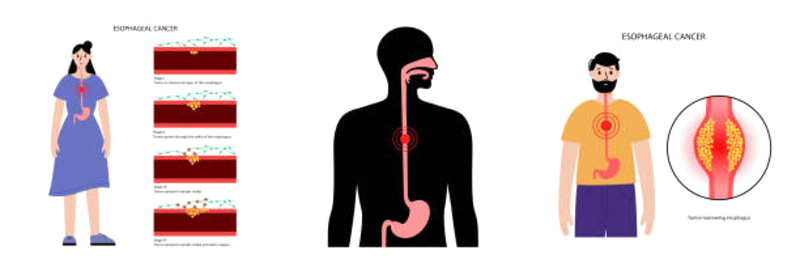Do you suffer from migraine attacks? If so, you know all too well the feelings of utter despair that come with a migraine attack. From exhaustion to nausea to sensitivity to light and sound, migraines can cause not only physical pain but emotional distress as well. While many people think they understand what causes migraines, few are aware of an important part of the process--prodrome symptoms. Understanding prodromal symptoms is absolutely essential for managing your condition effectively, so in this blog post we'll be taking a closer look at their role in the development and onset of migraines.
Defining Prodrome Symptoms - What Are They and How Do They Impact Migraines:

Prodrome symptoms are pre-migraine, or warning signs that indicate a migraine is about to begin. These symptoms can range from physical sensations such as fatigue and sensitivity to light, sound, or smells; to emotional disturbances such as mood swings and irritability. Prodromal symptoms can occur up to 24 hours before the onset of a headache, but can also begin right before or even during an attack.
The most common prodrome symptoms are:
- Headache/pain on one side of the head, which might be described as dull or throbbing
- Increased sensitivity to light and sound
- Disrupted appetite
- Thirst
- Neck stiffness or soreness
- Difficulty concentrating
- Depression, irritability, or mood swings
- Nausea or vomiting
- Fatigue and drowsiness.
It's important to note that prodrome symptoms can vary from person to person and may not manifest in the same way every time. This can make it difficult to identify the warning signs, so it's important to be aware of your own unique prodrome symptoms and how they might change over time.
Managing Prodrome Symptoms - How Can They Help Us Manage Migraines?:
Given that prodrome symptoms can occur hours before a migraine attack, being able to recognize and manage them can be an extremely effective way of preventing a full-blown migraine. Therefore, it's important to become familiar with your own prodrome symptoms and develop strategies for addressing them as they arise.
One of the simplest yet most effective methods is to take note of any changes in behaviour or physical sensations that you experience prior to a migraine attack and record them in a diary. This can help you identify any recurring patterns and allow you to take preventive measures, such as taking medication, resting, or avoiding triggers.
Common Signs of Prodromal Symptoms Including Headaches, Nausea, and Light Sensitivity:

In some cases, prodrome symptoms can include headaches that are similar to a migraine headache, but not as strong. These types of headaches may also be accompanied by nausea or sensitivity to light and sound. Other common prodrome symptoms include depression, irritability, increased thirst and appetite, neck stiffness or soreness, and difficulty concentrating.
If you're experiencing any of these symptoms, it's important to take note and try to manage them as best you can. These prodrome symptoms are the body's way of warning that a migraine attack is about to occur, so by being mindful of them and taking steps to prevent the onset of a headache, you could be saving yourself from a lot of pain and suffering in the future.
Understanding Your Migraine Triggers to Help Identify Onset of Prodrome Symptoms:
Identifying and understanding your migraine triggers is key to managing prodrome symptoms effectively. Triggers can vary from person to person, but may include certain foods, environmental factors, stress, and changes in sleep patterns. Keeping a diary of the foods you eat, activities you do, and situations you find yourself in before a migraine attack can help you pinpoint any triggers that may be causing prodrome symptoms and allow you to take steps to avoid them in the future.
Tips for Managing Prodrome Symptoms When Experiencing a Migraine:
When it comes to managing prodrome symptoms, there are a few key tips that you should keep in mind:
- Take note of your prodrome symptoms and any triggers you may have identified.
- Keep track of your daily activities and lifestyle changes in a migraine diary. This can help you recognize patterns that might be causing or contributing to prodrome symptoms.
- Avoid any known triggers, such as certain foods or drinks, stress, noisy environments, and changes in your sleep pattern.
- Try to reduce any external physical sensations that might be irritating your senses by wearing sunglasses if you're sensitive to light or using ear plugs for loud noises.
- Make sure to take regular breaks during the day and get plenty of rest.
- Talk to your doctor or a healthcare professional if you need help managing your prodrome symptoms.
By following these tips, you can be better equipped to identify and manage any prodrome symptoms that might be signalling the onset of a migraine attack. Understanding prodrome symptoms is an important part of effective migraine management, so it's essential to stay informed and take steps to reduce their severity.
Conclusion:
In conclusion, prodrome symptoms can be a useful warning sign of an impending migraine attack. By becoming aware of and recognizing your own prodrome symptoms, you can take steps to prevent the onset of migraines and manage your condition more effectively. This includes avoiding known triggers, taking regular breaks during the day, and getting plenty of rest. Additionally, keeping a diary of your daily activities and lifestyle changes can help you better understand any patterns that may be causing prodrome symptoms. Remember, understanding prodrome symptoms is an important part of effective migraine management, so it's essential to stay informed and take steps to reduce their severity.
FAQs:
Q: What are prodrome symptoms?
A: Prodrome symptoms are physical or emotional changes that can occur up to 24 hours before a migraine attack. Common prodrome symptoms include headache/pain on one side of the head, increased sensitivity to light and sound, disrupted appetite and thirst, neck stiffness or soreness, difficulty concentrating, depression, irritability, or mood swings, nausea or vomiting, and fatigue and drowsiness.
Q: How can progrome symptoms help us manage migraines?
A: Being able to recognize and manage prodrome symptoms can be an extremely effective way of preventing a full-blown migraine attack. By becoming aware of your own prodrome symptoms and developing strategies for addressing them as they arise, you can be better equipped to identify and manage any prodrome symptoms that might be signalling the onset of a migraine attack.




